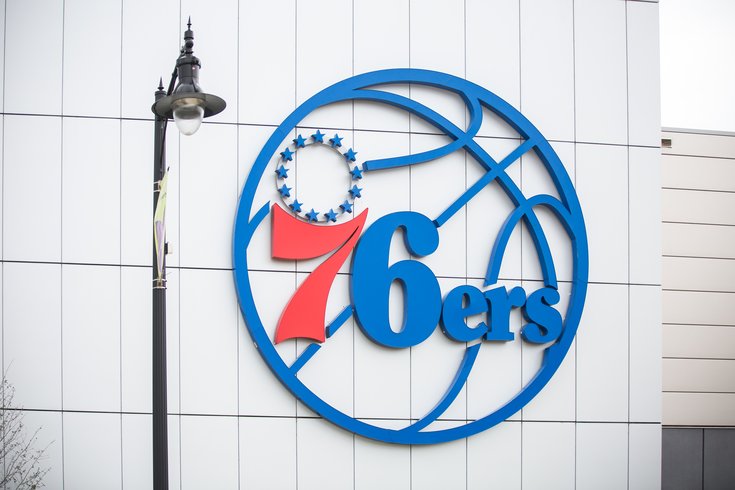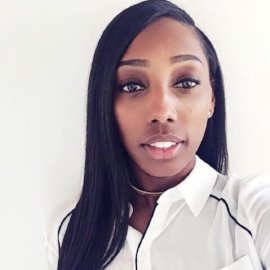
July 31, 2018
 Thom Carroll/PhillyVoice
Thom Carroll/PhillyVoice
The Philadelphia 76ers training facility near the Camden, NJ waterfront.
The Mary Kline Classic is switching things up this year.
Once a high school all-star basketball tournament run by Alex Kline (a Forbes 30 Under 30 and current Basketball Operations Assistant with the New Orleans Pelicans), this year the MKC is presenting a Sports and Business Symposium on Aug. 2 in partnership with Philadelphia’s Sidney Kimmel Cancer Center and Thomas Jefferson University. The symposium has a deep guest list, on that includes the general manager of the Super Bowl Champion Philadelphia Eagles, Howie Roseman. You can buy tickets at this link.
Ahead of Thursday’s event, PhillyVoice chatted with Shea Dawson, Manager of Team Programs and Player Services for the Philadelphia 76ers, who will be on the sports executives panel with Sixers assistant coach Billy Lange, members of the Pelicans and Nuggets organizations, and Alexys Feaster, the Director of Player Development for the NBA.
Dawson has been with the team since October 2016, hired after the Sixers' 10-72 campaign. Between the arrival of Markelle Fultz and Ben Simmons, a playoff run, and a lively offseason, it's been a busy two years for the team since she arrived in the city.
A San Diego native, Dawson played college basketball (and volleyball) at Robert Morris. She worked her way through a series of stops, including the NBA Las Vegas Summer League and a few opportunities at coaching other basketball players.
PhillyVoice: So, Manager of Team Programs and Player Services: What exactly does that all entail? What’s your normal day like during the season?
Shea Dawson: I do pretty much a little bit of everything. I'm kind of the liaison between players and the front office, or players’ agencies and the front office. Anyone visiting the facility, I'm there. And I work with players’ families when they come in to town, from the time they arrive to the time they leave. Kind of making sure they have everything, all the pieces in place.
This job is all day, every day. It’s great for me. I love people, and I love making people’s lives better.
PV: How’d you wind up with the Sixers?
SD: There was some movement in the league, and in some organizations, around the time I got hired. I was an intern at the Summer League. I made connections with (co-founder of the NBA Summer League) Albert Hall and made it known I wanted to work in the league. Once I made those connections, it sort of became Atlanta as one option and Philly as another, and I just organically gravitated to Philly. I interviewed for about two weeks, we played phone tag, the whole thing.
Brandon Williams, who's now an assistant GM in Sacramento, was a big part of my hiring. For team services he thought we needed that personal touch, someone who knew people and had been around athletes. Once he realized I’d been around basketball, I played, my brother played, he thought I’d be a great fit.
PV: It seems like, recently, teams have been putting an emphasis on treating players like people and not just like players — emotional intelligence, etc. What do you see happening there?
SD: I think it’s awesome. Every team’s goal is to have a player stay at an organization for their entire career. If you can provide that nurturing environment, you can retain your players longer and instead of always depending on the draft, you can develop your own roster.
PV: What’s the biggest question players ask you, or something they always ask for you to help with?
SD: They don’t ask enough questions! You don’t know what you don’t know, right? Part of my job is to reach out to them and make sure they know what’s available to them. I’m constantly checking in. ‘Have you talked to your agent?’ ‘Have you texted so-and-so back?’ Even stuff like, ‘Are you buying groceries?’ Just making sure they know there are questions they can ask, and we’ll be there for them.
PV: You’ve played women’s basketball and coached women’s basketball, and now you work in the world of men’s basketball. What was the journey like, seeing both sides of the sport and see the ways the two are treated?
SD: Playing women’s basketball versus coaching it, it was completely different for me, emotionally. When I was playing I had that sense of belonging, that family, sisters away from home. That was obviously the most obvious part about sports in general. Basketball came second, after camaraderie.
And then once I realized I didn’t want to play overseas or play post-college basketball, I moved into the college basketball operations. That’s how I started on my path. I was an intern for Five Star Basketball at Robert Morris, a huge camp, and worked there for years. All the guys wanted to coach, and I found my niche doing the managerial stuff. Managing everything behind the scenes, basically like what I do now. I found myself in a nurturing role.
Then I moved back to California, coached middle school, then got a high school job, and all of a sudden I was helping raising other people’s kids. It was neat to be a part of their lives and to tell them, “These are things to know before you go to college as a woman, these are things to know about yourself before you go to college,” etc.
After a while, I’d won a lot, and I felt like I needed another challenge. A next step.
I started helping my brother figure out his agency situation, encouraging him to be a professional instead of just a basketball player. And then I went from there.
PV: People might hear the names of players you’ve met and worked with — Kenneth Faried, Isaiah Thomas, Paul George — and see you working with a pro team, and think, ‘I want to get into sports, too.’ What’s something those people need to know before they dive into a career in basketball?
SD: I think they need to understand about basketball, if you want to get into professional basketball, or even college, or even high school, you need to be attending all the events, grassroots and up. Live period tournaments, you’ve got to show your face and connect with people who are running the events. Offer your services. Get that foot in the door, and prove yourself and your interest.
Once you do that, make those connections with coaches and the kids, and then you’re putting yourself in the circles where you need to be. And a big thing is trying to develop those organic relationships, rather than forcing your way in to someone’s life like it’s just more networking. If you can do it organically with a few people, you’ll always be first on their mind when they need help with something.
And you have to already be doing the things you love. I was doing it before I got to the Sixers. Are you doing these things already? Do your research. Find the time on your own. No one’s going to hire you if you’re not doing already out there.
Buy tickets for the Mary Kline Classic, here.
Follow Adam & PhillyVoice on Twitter: @@adamwhermann | @thePhillyVoice
Like us on Facebook: PhillyVoice
Add Adam's RSS feed to your feed reader
Have a news tip? Let us know.
